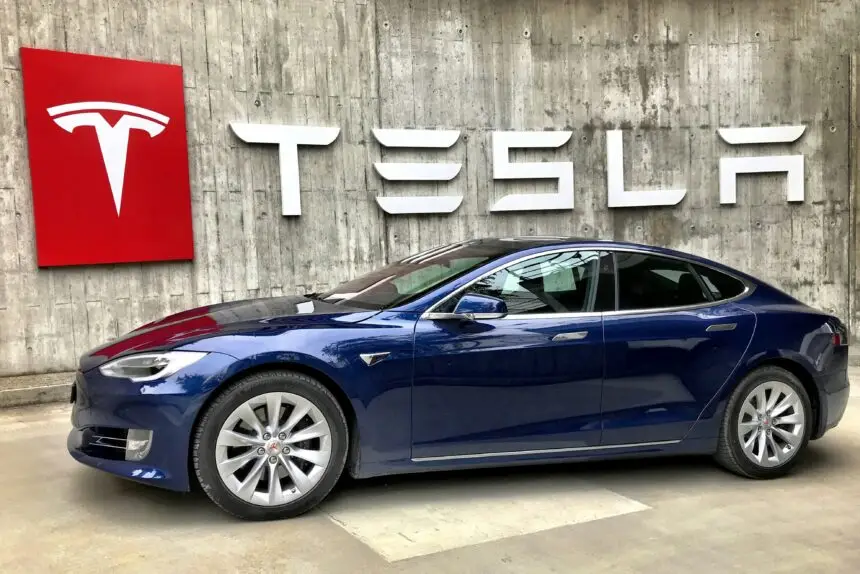Tesla CEO Elon Musk’s compensation is not just a corporate finance story; it is a billion-dollar legal and governance saga that has redefined the limits of executive pay. Currently, the narrative is split between the long-disputed 2018 performance award and the ambitious new performance-based package approved by shareholders in late 2025.
The central issue is the size, structure, and approval process of compensation packages that are less like traditional salary and bonus structures and more like moonshot incentives tied to unprecedented growth and innovation targets. The outcomes of these packages have vast implications for Tesla’s financial reporting and its corporate governance structure.
1. ⚖️ The $56 Billion Legal Time Bomb: The 2018 Award
The core of the legal dispute is the 2018 performance-based stock option grant.3 Originally valued at about $2.3 billion at the time of the grant, its value exploded to over $56 billion when Musk achieved all 12 tranches in early 2023.
The Original Structure and the Court Ruling
- Design: The 2018 award consisted of 12 tranches of stock options.4 Each tranche vested only if Tesla achieved a dual set of goals: Market Capitalization Milestones (e.g., growing market cap from 5$\sim\$50$ billion to $650 billion) and corresponding Operational Milestones (Revenue or Adjusted EBITDA targets) (2).6 The package was 100% at-risk, meaning Musk received no salary or guaranteed cash bonus.7
- The Delaware Ruling (2024): A shareholder lawsuit successfully argued that the pay package was unfair.8 The Delaware Court of Chancery rescinded the grant, ruling that the compensation process was compromised because the shareholders were not fully informed and raising concerns about Musk’s influence over the board members, treating him as a “transaction-specific controlling shareholder” (5).
The Looming Accounting Risk
Despite shareholders voting again to ratify the package, the court ruled the ratification ineffective. Tesla has appealed the original decision to the Delaware Supreme Court. The financial impact of losing this appeal is immense:
- The Cost: If the appeal fails, Tesla will likely have to account for a replacement stock-compensation package promised to Musk. This replacement package is valued at the current, much higher stock price, potentially triggering a $26 billion hit to profits over two years (1).
- The Impact: This $26 billion charge would equal more than half of Tesla’s total net income since becoming profitable in 2019, potentially pushing GAAP EPS into negative territory for seven straight quarters in the near future (4).
2. 🌌 The New $1 Trillion Pay Package (2025 Approval)
In late 2025, amid the uncertainty of the 2018 package, Tesla’s board proposed and shareholders subsequently approved a new, even more aggressive performance award.9 This package is often cited as potentially the largest corporate payout in history, with a maximum value estimated to be around $1 trillion if all targets are met (3).10
Mars-Shot Milestones
The new 2025 award is structured around 12 tranches of Restricted Stock (rather than options) and sets even more audacious goals, forcing Tesla to transform into a multi-faceted technology and robotics giant:11
| Milestone Type | 2018 Target (Full Vesting) | 2025 Target (Full Vesting) |
| Market Capitalization | $650 Billion | $8.5 Trillion (a nearly 6x increase from the current valuation) |
| Operational Targets | Revenue and Adjusted EBITDA goals | 1 Million Robotaxies in commercial operation, 1 Million Bots (Optimus) delivered, 20 Million vehicle deliveries, 10 Million Active FSD Subscriptions (2) |
Key Differences and Shareholder Rationale
- Retention Focus: The board argued the package is necessary to retain and motivate Musk, securing his focus on Tesla’s ambitious, future-oriented goals in AI and robotics (3).12
- Long-Term Vesting: Unlike the 2018 plan which vested upon achievement, the new award has significantly longer holding and vesting periods (up to 10 years), ensuring Musk remains committed to the company for the long run (2).13
- Shareholder Approval: Despite criticism from large institutional investors and proxy advisory firms, the package was approved by over 75% of the voting shareholders, demonstrating continued belief in Musk’s ability to deliver extraordinary value (3).14
3. 📉 Corporate Governance and Financial Volatility
The Tesla compensation saga has moved the discussion from whether the pay is justified by performance to whether the process is fair and whether the sheer size creates unacceptable financial risk for the company.
- Corporate Governance: Critics argue that the board lacks independence from Musk, creating a process where the CEO effectively dictates his own pay.15 The Delaware Court’s ruling against the 2018 package reinforces this view, focusing on the lack of genuine arm’s-length negotiation (5).16
- Profit Volatility: Both the old and new packages use stock-based compensation (SBC), which must be expensed on the income statement. While SBC is non-cash, the colossal size of Musk’s awards ensures that these accounting charges will squeeze Tesla’s reported profits for years (1). This creates financial volatility and uncertainty that is rare for a public company of Tesla’s stature.
The current situation is unprecedented: a company simultaneously facing a multi-billion dollar accounting charge from a rescinded award while having a new trillion-dollar package approved by its shareholders.17
4. 💡 The Investor Rationale: Why Shareholders Supported the Moonshot
Despite the enormous financial magnitude and the corporate governance red flags raised by the courts, a majority of Tesla shareholders voted overwhelmingly to approve both the 2018 ratification and the new 2025 package.18 This suggests a unique rationale that deviates from standard corporate finance models.
Alignment and Skin in the Game
The central argument for the compensation is unprecedented alignment (6). Traditional CEO pay models for S&P 500 companies averaged approximately $18.9 million in 2024, combining salary, cash bonus, and restricted stock, often with short-term vesting periods (7).19 By contrast, Musk’s compensation is 100% equity-based and entirely at risk; he receives no salary or cash bonus.20 If the aggressive market and operational goals are not met, he gets nothing.
- Exceptional Value Creation: Supporters argue that the potential dilution (cost) is far outweighed by the value creation required to unlock the pay. The $1 trillion award is only paid if Musk creates an estimated $7.5 trillion in incremental shareholder value (6).21 As one investor noted, the dilution is a worthwhile cost for an achievement of that scale.
- “Key Man” Risk: The board and many long-term investors contend that Musk’s singular vision and leadership in the fields of AI, robotics, and energy storage are irreplaceable.22 The packages are viewed as a necessary, extreme incentive to retain him and ensure his focus remains on Tesla over his other ventures.23 Losing Musk, they argue, poses a greater financial risk than the dilution from the pay itself.
- Roadmap for Innovation: The operational milestones in the 2025 package (Robotaxis, Optimus Bots, FSD subscriptions) function as a publicly declared roadmap for the company’s decade-long strategy.24 Shareholders are voting not just on pay, but on the explicit commitment to achieve the “Master Plan Part IV”—a strategy focused on transforming Tesla from an automaker into an AI and robotics leader (2).25
In essence, a majority of Tesla investors have embraced a founder-driven, high-risk/high-reward model of compensation, believing that only an “unfathomable” incentive can drive the “unfathomable” performance required to realize the full market potential of the company.
Source List
- Reuters: Forget Musk’s latest pay package, his last one could wipe out years of Tesla profits (Analysis of the accounting risk of the 2018 package).
- Harvard Law School Forum on Corporate Governance: The Trillion Dollar Man? Comparing Musk’s 2018 Pay Plan to His Latest Tesla Award (Detailed comparison of the 2018 and 2025 packages).
- CBS News: Tesla shareholders approve CEO Elon Musk’s $1 trillion pay package (Report on the 2025 shareholder vote result).
- Electrek: Elon Musk’s compensation could tank Tesla’s earnings for years if they lose the appeal (Analysis of the GAAP earnings impact of the interim 2025 award).
- Meridian Compensation Partners: Delaware Court Strikes Down Musk’s $56 Billion Pay Package (Details of the Delaware Chancery Court’s 2024 ruling).
- Nasdaq: Elon Musk’s $1 Trillion Pay Package: Here’s What Investors Need to Know (Investor perspective on goal alignment and retention).
- AFL-CIO: Executive Paywatch – 2025 (Comparison of S&P 500 CEO pay to Musk’s package).

